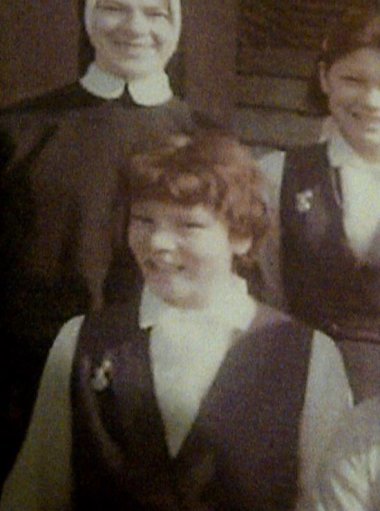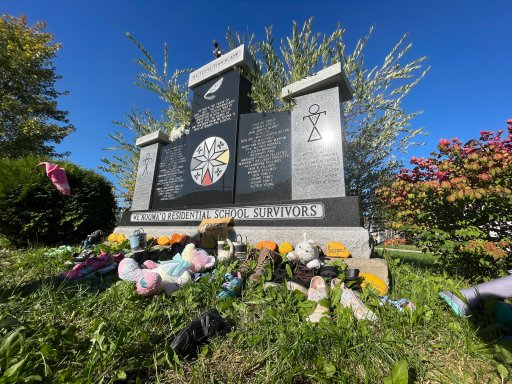A crisp, autumn air flows through the changing leaves of We’koqma’q First Nation, as residential school survivors and lifelong friends, Rose Marie Prosper and Ducy Paul, contemplate what the first National Day for Truth and Reconciliation means to them.
“For me, it’s a celebration. We’ve had too much sadness, silence, sorrow,” Paul says.
The Mi’kmaw women were two of hundreds of children from across the Maritimes and into Quebec, who were forced to attend the Shubenacadie Residential School, operated by the Government of Canada under the direction of the Catholic Church, from 1930 to 1967.
Documents from the National Centre for Truth and Reconciliation state that the overarching goal of the school was to mould the children into, “God-fearing citizens”, by stripping them of their Indigenous culture and traditions.
“I know I’m going to be thinking about all the kids that ever entered an Indian Residential School, all across Canada,” Prosper said.

A photo of Rose Marie Prosper while she was forced to attend the Shubenacadie Residential School until it closed in 1967.
Rose Marie Propser / Contributed
While the list of survivors from We’koqma’q First Nation continues to grow smaller each passing year, Prosper says the lifelong bonds she’s formed with survivors like Paul, have played an invaluable role in her healing journey.
“We were together 10 months of the year. So, we got to know each other as family, and then when the school closed in 1967, we all went our separate ways and we never saw each other again for years,” she said.
Read more:
The Truth about Reconciliation: How a day isn’t enough
Eventually, Prosper and Paul’s paths crossed again when they both found themselves living in We’koqma’q First Nation.
“I didn’t know anybody and then they had a dance at the community hall, so I went to the dance and the first person I saw was her,” Prosper chuckled.

A monument in Wekoqma’q First Nation lists the names of residential school survivors from the area.
Alexa MacLean/Global Halifax
Paul and Prosper plan to attend the unveiling of a monument dedicated to Shubenacadie Residential School survivors and say their minds will undoubtedly be with the thousands of children who never returned home.
“I’m just praying and hoping they find each and every child, at every site,” Prosper said.
Read more:
‘No one is exempt’: Former B.C. residential school caretakers on truth and reconciliation
As thousands of unmarked graves of residential school children continue to be found across the country, Prosper says it’s crucial that people recognize the full enormity of grief the residential school system has caused generations of Indigenous families.
“When it first came out, I cried for two days. I mean, finally, somebody’s recognizing what happened, what’s going on, we’re finally being heard,” Prosper said of the initial discovery of 215 unmarked graves of residential school children in Kamloops, B.C.
It was a sombre moment that also marked a tidal wave of gratitude both women have for the lifelong friendship they sparked in the face of sorrow.
“We were family then, we’re family now,” Prosper said.
